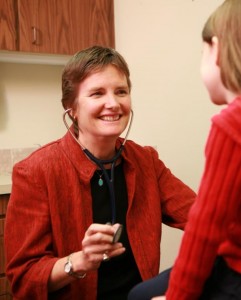Submitted by Dr. Ritchie of Vantage Physicians

In the wee hours of Sunday morning, November 3, we set our clocks back one hour, so that 2 a.m. becomes 1 a.m. This theoretically means that we gain one extra hour of sleep that night, so you might expect that this would make you feel more rested. Lots of people are chronically sleep deprived, so gaining an hour sounds like a good thing.
The problem is that our bodies don’t always respond very well to changes in sleep patterns- even small ones. When the body is suddenly asked to fall asleep an hour later each night, it may decide that that just isn’t going to happen. The result is that people are restless at night and tend to be sleepier the next day. This may be especially true if you are a “night owl” as opposed to a morning person. According to an article in the Journal of Applied Psychology from 2012, this sleepiness leads to a loss of productivity, and more “cyberloafing,” which means messing around on the computer the next day at work, rather than actually working.
The whole idea of daylight saving time was originally proposed by Ben Franklin, who noted that people used lots of candles at night, but slept past dawn. He wanted to get people up earlier in the morning during the long summer days. Daylight saving time was actually enacted in the United States for the first time in World War 1, as part of an effort to conserve fuel. At present, daylight saving time is used by the entire United States, except Arizona and Hawaii and four U.S. territories.
It is not clear if daylight saving time actually saves energy now. It probably does save us from some car crashes, however, since it is safer to drive when it is light out. The longer nights and shorter days of winter, especially here in the Pacific Northwest, signal our brains to produce more of the “hibernating hormone” melatonin. The melatonin is important in helping us regulate our sleep cycles, but it can also make us feel lethargic. Lots of people gain a few pounds in the winter, and often feel a little down or depressed. SAD, or Seasonal Affective Disorder, is a frequent problem around here as the winter sets in. Using special SAD lights for an hour each morning helps a lot of people avoid feeling down when the short days and long nights set in.



















































